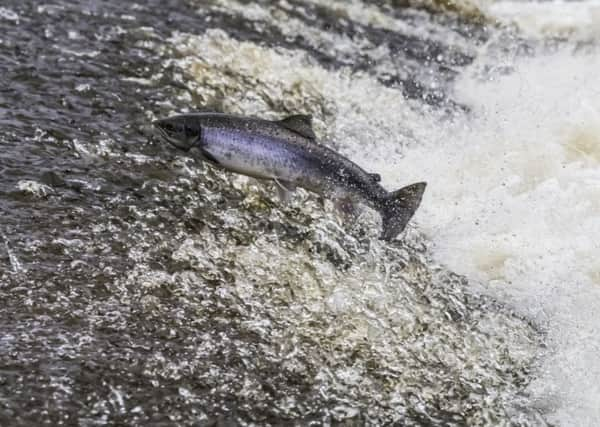Highlands salmon tracking study aims to halt species' decline


The Missing Salmon Project, which involves the fish being tagged and tracked, is described by organisers as the largest effort in Europe so far to help the species.
Anglers gathered at the River Garry on Tuesday to herald the start of the scheme run by the Atlantic Salmon Trust (AST), which hopes to discover why the fish is in trouble.
Advertisement
Hide AdAdvertisement
Hide AdAST executive director Sarah Bayley Slater said: “Salmon have been around for more than 60 million years, but their future looks very bleak indeed.
“If the decline we’ve seen across the Atlantic and in Scotland continues, the wild Atlantic salmon could be an endangered species in our lifetime.
“In launching the Missing Salmon Project, we are making our stand now and giving our generation a chance to save the species before it’s too late.”
The wild salmon population has declined by 70% in a quarter of a century, according to experts.
The project will tag juvenile fish, known as smolts, as they begin the journey from their home river towards the sea.
The fish are recorded as they pass through certain points, which will help to determine how many fish make it to the ocean and where it is that they are dying.
The exercise will start in the Moray Firth, where 20% of all salmon that leave the UK originate.
Organisers are aiming to raise £1 million through crowdfunding to support the tracking project, with the money to pay for the tags and the acoustic receivers that track the salmon’s journey.
Advertisement
Hide AdAdvertisement
Hide AdDr Matthew Newton, tracking co-ordinator for the AST, said: “If we’re going to have a meaningful impact on reversing the Atlantic salmon’s decline, we need to tag and track fish on a scale never seen before in Europe.
“By tagging the fish and tracking their progress from their spawning ground and back again, we’ll be able to pinpoint where fish are being lost - and help identify the causes for their increasingly worrying mortality rates.
“Too many times, humanity has acted too late when a species is in decline. We have an opportunity to act now and make a lasting, positive impact so we’d ask everyone with an interest in preserving not only Scotland’s wild identity, but one of the world’s most famous species’ futures, to support this ground-breaking project.
